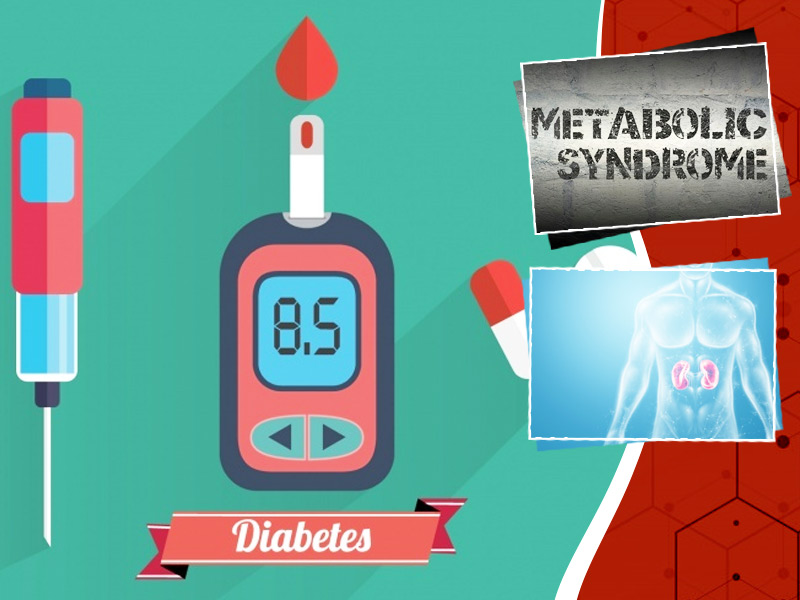
Diabetes is one of the most common and dangerous diseases of the modern age. Essentially a metabolic disease that causes high sugar, it has affected millions across the globe. India is particularly at risk of this disease, with the second highest prevalence rates across the world. In the post pandemic world, there has been even more reason to worry, with several studies finding a link between diabetes and COVID recovery. According to data obtained by a civic body, sixty per cent of patients who succumbed due to Covid-19 in Mumbai had diabetes and hypertension as underlying co-morbid conditions. This World Diabetes Day, Dr. Ajay Parikh, MD, Medicine, Consultant, General Medicine, Shalby Hospitals, Indore explains how this condition can affect other organs of your body and cause various health issues.
Table of Content:-
The pandemic that has grappled the world has increasingly put the focus on health, of which diabetic health forms an integral part. But it is essential to truly gauge the situation and understand diabetes with a deeper lens. As a disease known to disrupt one’s well being in many ways, most people are often unaware of the far-reaching effects of diabetes. Right from the most vital organ for functioning, the heart, to the feet, diabetes can affect a wide range of important functions in the body.
Does diabetes affect other organs?

As most of people are unaware of long term complication of uncontrolled diabetes, the diabetes is not treat seriously to begin with. Human anatomy is complex and interconnected. Even the tiniest vessels play a huge role in helping the body to function well.
- Diabetes causes high glucose levels that can cause acute damage to these blood vessels.
- This has far reaching effects on various body organs such as the eyes, nerves, feet and kidneys.
- Diabetes can even result in blindness, as high levels of sugar in the blood can harm the blood vessels in the eyes.
- Having high levels of sugar in the blood for a long time can damage the blood vessels that bring oxygen to some nerves. This can cause great damage to various nerves in the body, that may stop sending pain signals.
Diabetes Can Cause Kidney Dysfunction
Diabetes also causes grave problems for one’s feet, as nerve damage can stop one from feeling pain and cause numbness in the area. Diabetes can create poor blood circulation in the feet. It also substantially reduces the efficiency of the kidneys, causing high blood sugar to make blood vessels in the region narrow and clogged. As a result, kidneys get less blood, and less waste is churned out of the body. The disease results in dysfunctional kidneys for millions of diabetes patients every year, it is the number one cause of kidney failure in various countries. This phenomenon is called ‘diabetic kidney disease’.
Diabetes is also known to make pre-existing kidney problems worse. Diabetics with kidney ailments are far more likely to develop heart diseases, and experience strokes, blindness, nerve damage, and foot amputations. It can also cause anemia, which means the body does not have enough red blood cells due to high sugar levels.
Also Read: Planning a Pregnancy When You Have Diabetes? Follow These Tips For A Healthy Pregnancy

Metabolic Disorders Caused Due To Diabetes
When looking into the far-reaching effects of diabetes, one often forgets the metabolic disorders it also causes. A metabolic disorder is when something is wrong with the body's metabolism- the ability to turn food into energy and get rid of waste. Metabolic disorders can manifest in different ways, in the body of a person suffering from the disease.
Type 1 Diabetes is essentially an autoimmune disease, wherein the cells in the body begin to attack themselves. It destroys insulin-making cells in the pancreas. This often results in a phenomenon called Diabetic ketoacidosis (DKA). Under this disorder, when one’s body can't get enough glucose for fuel, it breaks down fat cells instead. This results in the creation of certain chemicals known as ketones. As a result, the liver releases the sugar it stores to help out. But since the body can’t use it without insulin, it builds up in the blood, along with the acidic ketones, creating metabolic problems for patients.
Also Read: Women May Develop Metabolic Syndrome In The Perimenopause Phase
Metabolic disorders also affect unborn children under a unique type of diabetes, known as gestational diabetes. In this phenomenon, women who become pregnant for the first time experience low insulin levels that in turn result in abnormally high sugar levels, which can harm the baby. In some cases, it can affect the child’s metabolic health later in life, causing them to develop type 2 diabetes.
Conclusion
With the rising cases of obesity and a sedentary lifestyle, diabetes cases across the country are shooting up exponentially. A recent survey conducted in 2021 found that people who live in cities and metropolitan areas in India are more likely to develop diabetes than ever before. Awareness regarding the far reaching effects of the disease is extremely important to curb it in the long term. Making permanent changes in one’s lifestyle, such as switching to a healthier diet and exercising regularly can help reduce the chances of developing the disease and curate a healthier life. Because, health is indeed wealth, and keeping diabetes in check through awareness and active steps towards a better lifestyle are integral towards building this wealth!
Image credits- freepik
Also watch this video
How we keep this article up to date:
We work with experts and keep a close eye on the latest in health and wellness. Whenever there is a new research or helpful information, we update our articles with accurate and useful advice.
Current Version